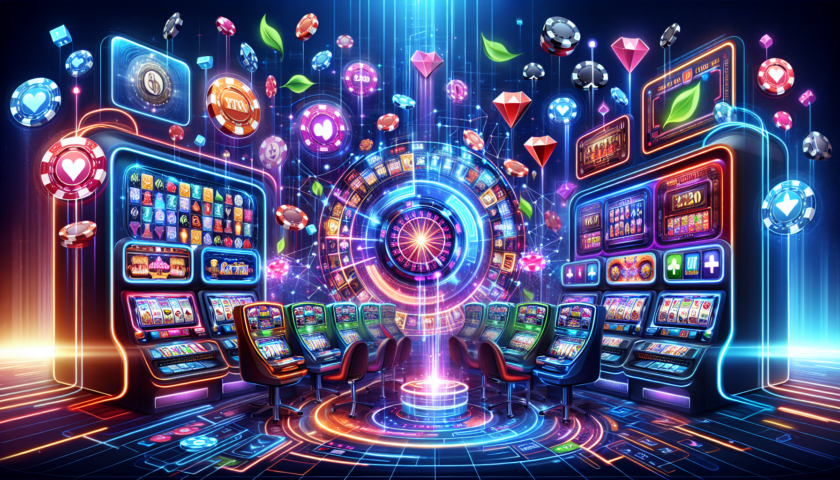Online gaming platforms have evolved significantly over the years, transforming from simple entertainment outlets to complex, social ecosystems that bring together players from all around the world. While gaming has always had a social aspect—whether through local multiplayer sessions or community-driven content—modern platforms have taken this interaction to new heights. Today’s gaming platforms are not just about playing Hoki805 games; they are about social engagement, personal expression, and creating digital communities.
The Rise of Social Networking Features in Gaming Platforms
One of the most notable shifts in online gaming platforms is the integration of social networking features that go far beyond basic player interaction. Platforms like Steam, Epic Games, Xbox Live, and PlayStation Network allow gamers to connect not only for gameplay but also for sharing experiences, creating content, and even networking for professional or casual collaborations.
- Friend Systems and Social Circles: Modern gaming platforms are designed to foster social connections, allowing players to add friends, create groups, and send messages. These features blur the lines between social media and gaming, providing players with the means to keep in touch with friends, track their progress, and easily find others to play with.
- Live Streaming and Content Creation: Platforms such as Twitch and YouTube Gaming have become hubs for content creators, streamers, and viewers to connect over gaming experiences. This has transformed gaming into a form of entertainment that is not just about playing but also watching others engage in gameplay. The social aspect of live streaming allows gamers to interact in real-time with their favorite streamers, making the gaming experience a shared one on a massive scale.
- Game-Specific Social Platforms: Games like Fortnite, Minecraft, and Roblox have developed their own social ecosystems. Fortnite isn’t just a battle royale game; it hosts concerts, events, and social gatherings within the game itself, allowing players to interact in a dynamic world. Minecraft allows players to build together, create and share custom content, and form entire communities. Meanwhile, Roblox is known for allowing players to not only play games created by others but also to design their own games and share them with the world.
The Integration of Virtual Economies and Social Interaction
Another fascinating trend within modern gaming platforms is the merging of virtual economies with social dynamics. Virtual currencies, in-game purchases, and digital goods play an increasingly significant role in how players interact with each other. These elements encourage social behavior and create opportunities for social interactions that are not just about gameplay but also about building and displaying virtual identities.
- In-Game Marketplaces: Platforms like Steam and Epic Games Store feature vast virtual marketplaces where players can buy, sell, and trade in-game items, skins, and accessories. These virtual goods have become an integral part of the gaming experience, and often, the value of these digital items is influenced by their social and cultural relevance within the gaming community.
- Social Clans and Guilds: In many multiplayer games, especially role-playing games (RPGs) and massively multiplayer online games (MMOs), the creation of guilds, clans, and teams is a key social function. Players band together for collective goals, whether it’s to achieve high rankings, complete difficult quests, or simply to enjoy shared experiences. Guilds not only enhance social interaction but can also create a sense of belonging and camaraderie.
The Emergence of Cross-Platform Play and its Social Impact
One of the most impactful innovations in online gaming platforms has been the introduction of cross-platform play. Previously, players were often restricted to interacting with others who owned the same console or played on the same operating system. However, thanks to cross-platform functionality, players can now connect with friends and strangers across different devices, from PC to PlayStation, Xbox, and mobile.
- Breaking Down Barriers: The ability to play across platforms has drastically expanded the social networks that players can engage with. It enables friends who own different devices to play together, which strengthens social ties and expands the sense of community within games. This cross-platform shift has transformed gaming into a universal experience that transcends hardware limitations.
- Unified Player Experience: Cross-platform play also results in a more unified gaming experience. Players can now be part of larger communities, participate in cross-platform tournaments, and enjoy seamless integration between different devices. This fosters a truly global and inclusive environment for gamers.
The Future of Social Gaming
Looking forward, online gaming platforms will continue to innovate in how they integrate social features. With the advent of virtual reality (VR), augmented reality (AR), and artificial intelligence (AI), the possibilities for social gaming are endless. Players will likely be able to create even more immersive digital experiences, socialize in virtual environments, and interact with AI-driven characters in new, exciting ways.
